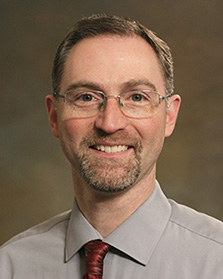
Division Chief
Welcome to the Division of Hospice and Palliative Medicine (HPM) in the Department of Medicine. We are pleased to offer holistic support for patients and families facing serious illness, as well as an interdisciplinary educational experience for learners of all levels.
What is palliative care? What is hospice?
All hospice is palliative care, but not all palliative care is hospice. Palliative Care is specialized medical care for people living with serious illness (capc.org). It provides holistic care for patients and families facing the stress of illness, providing compassionate extra support for them using a team approach. It can begin at diagnosis, can be given along with curative treatments, and continue until death. Hospice is a model of palliative care that is covered by insurance and focuses on the last 6 months of life. The hospice philosophy of care is centered on comfort and dignity near the end of life, with interdisciplinary and holistic care provided mainly at home or in a hospice or nursing facility. The focus is on promoting the best quality of life and comfort (living well) as well as a peaceful end of life experience for the patient and family. Bereavement support is also provided for 13 months afterwards.
Who provides palliative care and/or hospice services?
Interdisciplinary palliative care and/or hospice teams include physicians, advance practice providers (PAs, NPs), nurses, social workers, chaplains, and other support staff such as medical assistants, therapists, counselors, dieticians and pharmacists.
What services are provided to patients and their families?
HPM teams improve quality of life by treating pain and other symptoms, as well as offering extra support to reduce stress and depression related to serious illness. They also enhance communication with patients and families and among the treating medical teams, to improve understanding of disease processes and treatment options, as well as promote alignment with patient/family-centered goals of care. Included in this is identification of who would make medical decisions if the patient became unable to communicate wishes (i.e. DPOA, or Durable Power of Attorney for healthcare), and what those wishes are regarding artificial life supports (i.e. code/resuscitation status). Teams also assess a person’s health trends over time to better estimate prognosis (life expectancy) and evaluate if or when hospice may be appropriate.
Where are palliative care and hospice services provided in the Kalamazoo area?
HPM is offered at both Kalamazoo hospitals (Beacon Kalamazoo and Bronson Methodist Hospital) and their affiliated cancer center clinics; CentricaCare Navigators hospice (Rose Arbor facility; home visits and clinic at Bronson Cancer Center).
How can I learn more through educational training in Kalamazoo?
Interested students (PA, medical, NP, pharmacy) students may do a 1-4 week rotation with either of the 2 inpatient palliative care teams (Beacon Kalamazoo Palliative Care; Bronson Advanced Illness Management/AIMS) or with hospice (CentricaCare Navigators). Residents who will be completing or have completed a minimum 3-year residency may apply for a subspecialty HPM fellowship program.









